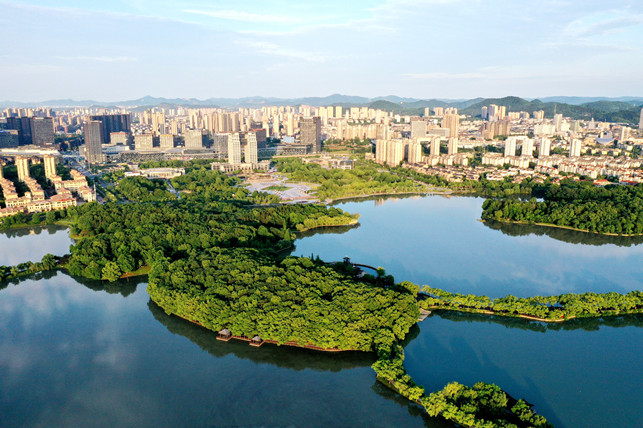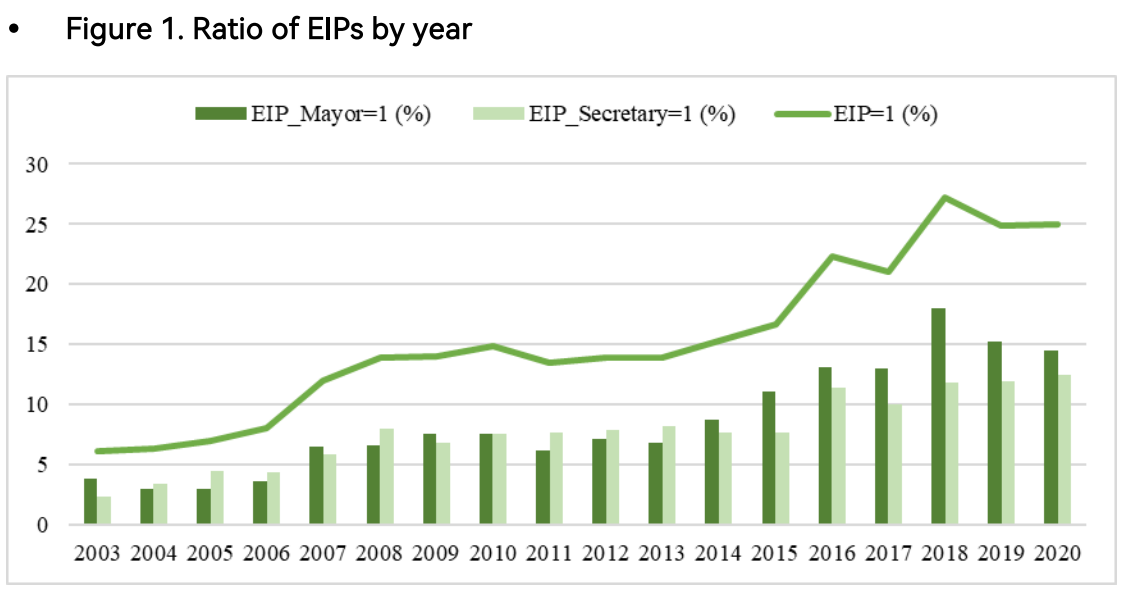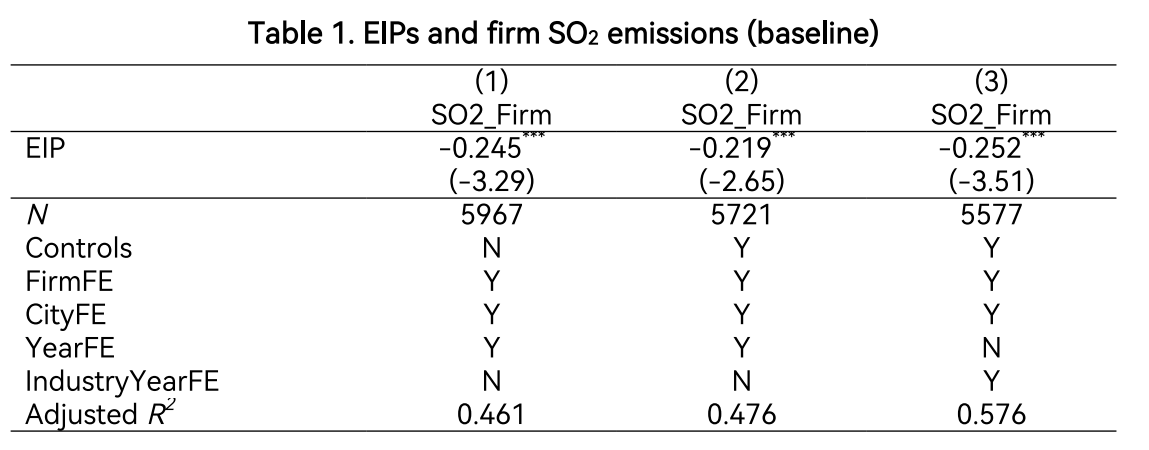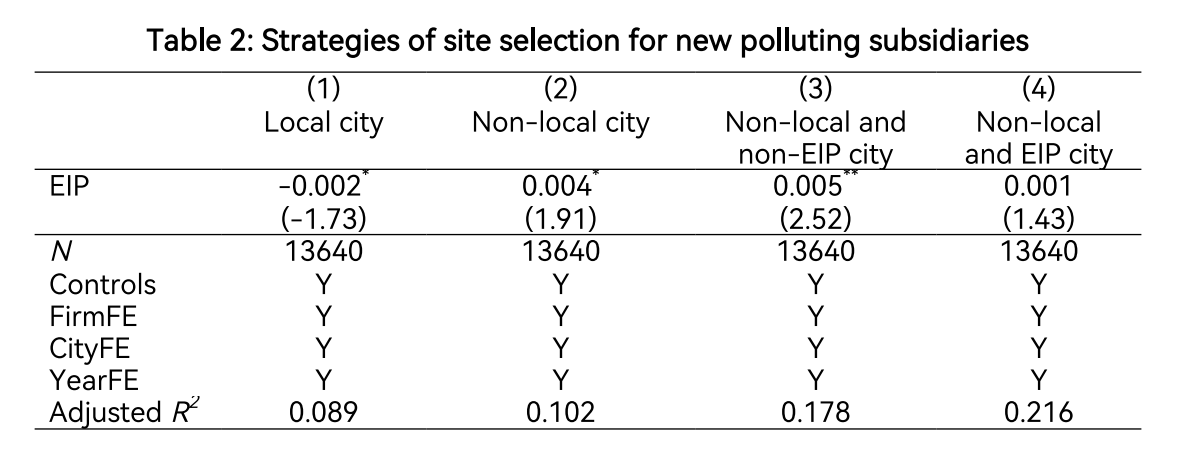Environmentally Inclined Politicians and Local Environmental Performance:Evidence from Publicly Listed Firms in China
We investigate whether and how environmentally inclined politicians (EIPs), i.e., politicians with prior environment-related work experience, affect local environmental performance in China. We find that EIPs are associated with lower levels of sulfur dioxide (SO2) emissions at both the firm and city level, and firms in cities with EIPs commit fewer environmental violations and receive more green subsidies from the local government. We also find that the economic performance of cities governed by EIPs is not statistically different from that of cities governed by non-EIPs.

With the global attention on environmental issues, much of the discussion centers on the relationships between a company’s governance structure and its environmental activities. Characteristics that have been shown to be associated with a firm’s environmental outcomes include the markets in which the firm operates, the firm’s leadership, its ownership structure, and its financial performance (Gillan, Koch, and Starks 2021). In China, where the government continues to play an important role in economic and social development, the effectiveness of environmental protection often rests in the enforcement of government regulations and the implementation of top-level policy guidance. Much of this implementation and enforcement then relies on local government officials (Chen, Li, and Lu 2018; Karplus, Zhang, and Zhao 2021).
In our recent working paper (Fang et al. 2023), we attempt to understand the role of government, especially government officials, in local public firms’ environmental performance by exploring politicians’ past environment-related work experience. On one hand, environmentally inclined politicians (EIPs) have more expertise in pollution control and local environment improvement, which lower their marginal cost in achieving environmental goals. In a multitasking model in which environment protection and economic development can both contribute to their promotions, EIPs will choose to optimally allocate more effort in environmental causes than their non-EIP counterparts. On the other hand, EIPs may have a stronger preference toward environmental protection, even if better environmental performance does not translate into greater promotion chances. We refer to the first mechanism as the strategic channel and the second the preference channel. Both channels would predict a positive (negative) relation between EIPs and local environmental performance (emissions).
From 2003 to 2020, we identify 2,078 Party Secretaries and mayors from 337 cities, among which 184 (8.85% of 2,078) politicians have prior environment-related work experience. Figure 1 plots the proportion of EIPs by year. We observe an upward trend in both city mayors and Party Secretaries with past environment-related work experience.

We measure firms’ environmental performance using SO2 emissions because it is the main type of air pollutant emitted by firms and a key environmental target during our sample period (Liu et al. 2021). Table 1 presents the regression results investigating the relation between EIPs and firm SO2 emissions with different control sets and fixed effects. We observe a negative and statistically significant association between having an EIP and local firms’ SO2 emission level. Using the estimate in Column (2) for illustration, publicly listed firms located in a city with an EIP have a 47% (0.219/0.465) lower SO2 emission level. Our baseline results also remain in the subsample of firms that experienced turnovers from non-EIPs to EIPs with a matched sample analysis. The effectiveness of EIPs in pollution control also varies with the incentives they face. We find that the effect of EIPs on environmental performance is much weaker when the politician is in their second term and when a firm is more economically important. These findings are more consistent with the strategic rather than the preference motivation for EIPs.

To address the possible endogeneity issues, e.g., the appointment of EIPs is correlated with previous city-level or firm-level emissions, or that differences in firm-level emissions ex post are sourced from their differences ex ante, we also conduct a matched sample analysis using a propensity score matching. The results are robust and in fact stronger than the baseline results reported in Table 1. We also conduct a determinants analysis of EIPs at the city-level. We observe no significant relation between city characteristics and the appointment of an EIP to a city, suggesting that there is not a very strong selection issue in appointing an EIP to a city with a particular type of characteristics.
What are the mechanisms through which EIPs regulate firm emissions or incentivize firms to achieve environmental goals? We show that firms located in cities with EIPs experience a greater likelihood of being detected of environmental violations, and hence they have an ex ante lower tendency to violate environment regulations. Furthermore, we document that firms located in cities with EIPs receive more green subsidies from the local government supporting green transition.
Several studies document that firms strategically respond to increasingly stringent environmental policies, including shifting production to non-regulated firms under the same conglomerates (Chen et al. 2021) or moving out of states with more strict policies (Bartram, Hou, and Kim 2022). We also examine potential externalities generated by EIPs through firms’ internal resource allocations. First, we document a positive spillover effect of EIPs on emission controls of non-local subsidiaries of these firms. Second, we examine firms’ location choices for establishing new polluting subsidiaries. Table 2 shows that the parent firm is more likely to establish new polluting subsidiaries in non-local cities without EIPs, suggesting that firms consider local environmental requirements and the relative stringency of local enforcement when making strategic decisions.

Lastly, we examine the relation between EIPs and local economic performance and find no significant difference in economic performance between EIPs and non-EIPs. Furthermore, we investigate the factors affecting politicians’ career advancement likelihood and show that EIPs’ career advancement likelihood is negatively related with local SO2 emission level. This link between career advancement and environmental performance further rationalizes EIPs’ strategic incentives to perform well on environment protection.
Our paper contributes to the literature examining the relation between internal and external governance structure and firms’ environmental performance by providing a new perspective on the role of local government officials in firms’ environmental performance. The study also adds to our understanding of how politicians’ background affects their political preferences and behavior in office. Finally, we highlight the heterogeneities in politicians and the potentially different incentive schemes faced by politicians with different characteristics or backgrounds.
Hanming Fang is a Professor of Economics at the University of Pennsylvania and the National Bureau of Economic Research; Honglin Ren, Danwen Song, and Nianhang Xu are Professors of Finance at Renmin University of China.
References
Bartram, Söhnke M., Kewei Hou, and Sehoon Kim. 2022. “Real Effects of Climate Policy: Financial Constraints and Spillovers.” Journal of Financial Economics 143 (2): 668–96. https://doi.org/10.1016/j.jfineco.2021.06.015.
Chen, Qiaoyi, Zhao Chen, Zhikuo Liu, Juan Carlos Suárez Serrato, and Daniel Xu. 2021. “Regulating Conglomerates in China: Evidence from an Energy Conservation Program.” NBER Working Paper No. 29066. https://doi.org/10.3386/w29066.
Chen, Yvonne Jie, Pei Li, and Yi Lu. 2018. “Career Concerns and Multitasking Local Bureaucrats: Evidence of a Target-Based Performance Evaluation System in China.” Journal of Development Economics 133: 84–101. https://doi.org/10.1016/j.jdeveco.2018.02.001.
Fang, Hanming, Honglin Ren, Danwen Song, and Nianhang Xu. 2023. “Environmentally Inclined Politicians and Local Environmental Performance: Evidence from Publicly Listed Firms in China.” NBER Working Paper No. 31071. https://doi.org/10.3386/w31071.
Gillan, Stuart L., Andrew Koch, and Laura T. Starks. 2021. “Firms and Social Responsibility: A Review of ESG and CSR Research in Corporate Finance.” Journal of Corporate Finance 66: 101889. https://doi.org/10.1016/j.jcorpfin.2021.101889.
Karplus, Valerie J., Junjie Zhang, and Jinhua Zhao. 2021. “Navigating and Evaluating the Labyrinth of Environmental Regulation in China.” Review of Environmental Economics and Policy 15 (2): 300–322. https://doi.org/10.1086/715582.
Liu, Zheng, Hongtao Shen, Michael Welker, Ning Zhang, and Yang Zhao. 2021. “Gone with the Wind: An Externality of Earnings Pressure.” Journal of Accounting and Economics 72 (1): 101403. https://doi.org/10.1016/j.jacceco.2021.101403.

Latest
Most Popular
- VoxChina Covid-19 Forum (Second Edition): China’s Post-Lockdown Economic Recovery VoxChina, Apr 18, 2020
- China’s Great Housing Boom Kaiji Chen, Yi Wen, Oct 11, 2017
- China’s Joint Venture Policy and the International Transfer of Technology Kun Jiang, Wolfgang Keller, Larry D. Qiu, William Ridley, Feb 06, 2019
- The Dark Side of the Chinese Fiscal Stimulus: Evidence from Local Government Debt Yi Huang, Marco Pagano, Ugo Panizza, Jun 28, 2017
- Wealth Redistribution in the Chinese Stock Market: the Role of Bubbles and Crashes Li An, Jiangze Bian, Dong Lou, Donghui Shi, Jul 01, 2020
- What Is Special about China’s Housing Boom? Edward L. Glaeser, Wei Huang, Yueran Ma, Andrei Shleifer, Jun 20, 2017
- Evaluating Risk across Chinese Housing Markets Yongheng Deng, Joseph Gyourko, Jing Wu, Aug 02, 2017
- Privatization and Productivity in China Yuyu Chen, Mitsuru Igami, Masayuki Sawada, Mo Xiao, Jan 31, 2018
- How did China Move Up the Global Value Chains? Hiau Looi Kee, Heiwai Tang, Aug 30, 2017
- China’s Shadow Banking Sector: Wealth Management Products and Issuing Banks Viral V. Acharya, Jun Qian, Zhishu Yang, Aug 09, 2017




 Facebook
Facebook  Twitter
Twitter  Instagram
Instagram WeChat
WeChat  Email
Email 


